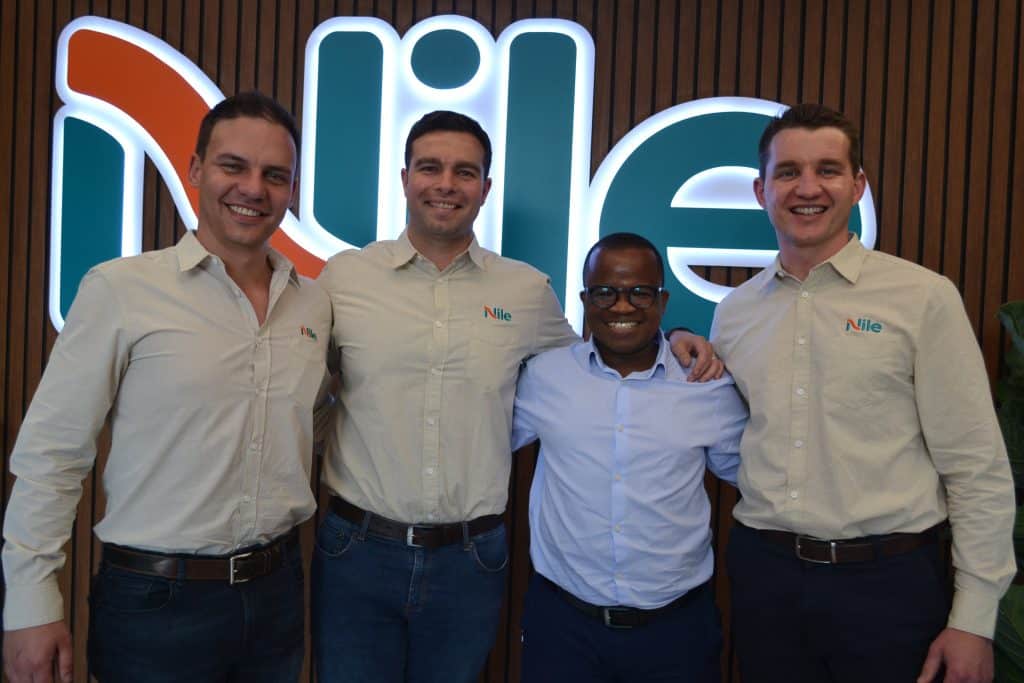Estimated reading time: 4 minutes
Recently, the three-year-old fresh produce online marketing platform, Nile, opened its second distribution centre and at the same time launched the new Nile Agri Inputs Marketplace.
The new hub is strategically positioned in Samrand Business Park, close to numerous retail distribution centres and processors. Furthermore, it has the capacity to move 2 500 pallets of fruit and vegetables a day in four different temperature zones.
“Because we manage stock on a ‘just in time’ basis, around 95% of produce is shipped from the hub within 24 hours,” said Louis de Kock, co-founder of Nile. Fast handling ensures extended shelf life and enables precision refrigeration.
Read more about Saai and Afriforum’s joint vegetable project.
Nile’s importance to the industry
“Although this company was recently founded, it will play an instrumental role in the agricultural sector over time, starting in the horticultural and input space,” said Wandile Sihlobo, chief economist at Agbiz. During the launch, Sihlobo said a healthy agricultural sector was crucial to Nile’s success. However, it is also crucial that Nile and companies like them succeed if the agricultural sector is to remain sustainable.

“The world economy is currently in bad shape, so kudos to the management for starting a business under these tough conditions,” Sihlobo said. He added that one needs to keep in mind that the business was initiated during years of good rainfall, and it would be put to the test once the country goes into a fully-fledged drought cycle.
“However, businesses that function within the agricultural technology space and enable other role-players in the sector to overcome obstacles that they face or help them to do business more cost-effectively, will thrive.”
Rapid expansion
“In 2020 food security was quite topical and the question kept coming up: Why are South African producers still marketing their produce in the same way as my grandfather, Kenne de Kock, marketed his peaches and apricots in the 1950s?” De Kock said. This is where the idea of an online marketing platform originated for the former investment banker and his co-founders, Eugene Roodt and Rick Kleinhans. They had managerial experience in food, e-commerce, finance, and software development from world-leading companies such as Amazon, Jumia, JP Morgan and Luno.
The business idea – to connect producers directly with commercial buyers – took off after the beta version of the platform was launched in September 2020. By January 2021, the first Nile office was opened at a truck stop and by April 2021, their first cross-border trading with Eswatini commenced. By June 2022 the first hub was opened and by January 2023 the team launched a smartphone application.
“Initially, I believed that we would be lucky if we could fill our first distribution hub within the first five years, but within six months our business outgrew the facilities and we needed to build a second hub.”
New agricultural input marketplace
Michael Prinsloo, head of Agri Inputs Marketplace at Nile, said the company decided to also launch an input marketing platform after producers asked for a digital input solution. “Producers were mainly frustrated with non-transparent pricing, large price discrepancies on products, inadequate finance options, and product recommendations that were not independent.”
However, it was important to ensure that they were in fact in a position to add rapid value through such a platform. “After doing some research, we decided that we were ideally positioned because we are able to link world-class suppliers to producers, provide real-time pricing and availability data, link producers with product experts and provide credit by means of offtake relationships.”
Over the next three to six months Nile will focus on inputs such as packaging, biological solutions, solar power, crop protection and much more. – Susan Marais, Plaas Media

